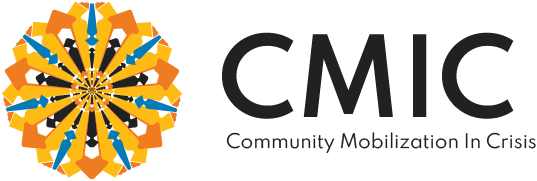When you are gathering knowledge for community mobilization, it is important to recognize the importance of relational knowledge and accountability for your process of knowledge gathering.
Tracy Coates
Tracy Coates is a professor in Canada, who teaches about and does research with Canadian Indigenous communities. (She is introduced more fully in the object called “What is Knowledge?”) In this video, she tells a story of taking her students and partners to a remote community, and how they were accountable to that community.
Transcript
And a family was driving down to get to one of the cities far away from the community and a truck for a development company zoomed by on their way up to destroy whatever resources they were trying to extract and the family went off the road and the mother died. And so this happened a couple of days before our team arrived in the community. And so when we arrived in the community, this is a small community of about three hundred people, and there was actually two people who had died so it affected pretty much everyone. So this is not, even though we had the trip planned for months, even though I had my students with me and the other professors had students with them and it was meant to be a learning process for them, it was, it was a very big learning process for them because they saw us put aside our needs, put aside the research that we had grants for, that we had timelines and deadlines to get to and help the community. And so, the first thing we did is we went to the leadership and said “what can we do”. And then they said go and speak to this man, he’s directing everybody to do the different things and so we went, and we sat in a circle and we all described our skill sets. And said you know, these are the things that we can do. And because death happens so frequently in these communities, there’s often suicides that follow up because of the hardships and because people just can’t deal with it and often they feel like there’s no hope and there’s no way to get out and they’re losing loved ones all the time right.
So, some of us were asked if we could go on suicide watches, some of us were asked if we could cook food for the community members, some of us were asked to babysit, some of us were asked to do a whole diversity of things …to help the community because that’s what the community needed and we were there. And so, we did that. And that was, even though we had thirty focus groups we were supposed to do over the course of four and a half days, it didn’t matter. All of that got put aside because we had a relationship with this community, because we were partners with this community, because we weren’t there; our project wasn’t based on getting certain outcomes or deliverables to make somebody outside of the community happy. Our focus, and we tell our funders this, we tell our university administrators, we tell all those people on the outside our focus is the community. Our community that we’re working with needs the help that they designate us to give them and that is the priority and that is always the priority. It is always the people on the ground and it’s not research papers, it’s not books, it’s not deadlines, it’s none of that.
So we put all the research aside and we cooked and we sat with the kids and we sang songs and we attended the burial and some people even helped to dig the grave because they kept collapsing in. So we did grave digging, we did all of these things and it did not matter that the research had to be put aside and afterwards, after the funeral and there was another day, the community mobilized and said this is what we need. You are true partners and we had people come in floods to try and fill up and try to give us the input that we needed to help them achieve goals that they wanted to achieve so that these sorts of things wouldn’t happen again. And so, even though the data was, it was a different approach, even though we didn’t do it you know, in the “rigorous” academic way, we got so much beautiful input that we never would have gotten if we just popped into the community, didn’t have these relationships, like the people were so honest, so upfront, so engaged and happy to share because they knew that we were going to do the right thing for them and help them do the right things for themselves. And that’s how I do research.
